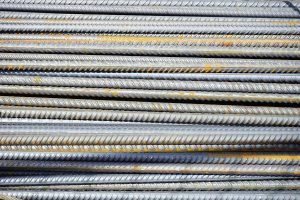Blog
Why North East Manufacturers Choose Stainless Steel: Benefits Beyond Durability
Stainless steel has become the material of choice for manufacturers across the North East, from pharmaceutical facilities in Newcastle to food processing plants in Durham and chemical manufacturers throughout the region. But what makes stainless steel so universally valued, and why do discerning manufacturers consistently specify it for their most critical applications?
The North East Manufacturing Landscape
The North East has a proud manufacturing heritage spanning over a century. From our base in Newcastle upon Tyne, we’ve witnessed the region’s industrial evolution firsthand—from heavy engineering to today’s sophisticated pharmaceutical, biotech, and food processing sectors. What hasn’t changed is the demand for materials that can withstand the rigorous requirements of high-integrity manufacturing.
Modern North East manufacturers face unique challenges: stringent regulatory requirements, demanding quality standards, and the need to compete globally while managing costs. Stainless steel fabrication addresses these challenges head-on, offering a combination of performance characteristics that no other material can match.
Corrosion Resistance: The Primary Advantage
The North East’s industrial sectors—particularly food, pharmaceutical, and chemical processing—demand materials that resist corrosion from aggressive substances. Stainless steel’s chromium content forms a passive oxide layer that self-heals when scratched, providing lasting protection against:
Chemical attack from acids, alkalis, and solvents used in manufacturing processes. Pharmaceutical companies processing active ingredients, food manufacturers handling acidic products, and chemical plants dealing with corrosive substances all depend on stainless steel’s resistance.
Moisture and humidity in processing environments. Many North East facilities operate in conditions where moisture is constant, whether from steam cleaning, product characteristics, or environmental factors. Stainless steel prevents the rust and degradation that would quickly compromise carbon steel.
Temperature extremes from cryogenic applications to high-heat processes. The material maintains its corrosion resistance across temperature ranges that would destroy alternative materials.
Hygiene and Cleanability: Critical for North East Industries
The region’s significant food and pharmaceutical sectors have made hygiene standards a priority. Stainless steel’s smooth, non-porous surface prevents bacterial growth and allows thorough cleaning—essential for meeting stringent regulatory requirements.
For food manufacturers, stainless steel equipment meets Food Safety Modernisation Act (FSMA) standards and is easily validated for hygiene. The material doesn’t harbour pathogens, withstands aggressive cleaning chemicals, and resists the frequent high-temperature wash-down cycles required in food production.
Pharmaceutical manufacturers face even more demanding standards. Good Manufacturing Practice (GMP) regulations require materials that won’t contaminate products, can be sterilized repeatedly, and maintain integrity throughout their service life. Stainless steel, particularly electropolished grades, provides the ultra-smooth surfaces necessary for pharmaceutical applications, reducing particle generation and preventing product contamination.
Strength and Durability: Long-Term Value
While initial costs may exceed alternatives, stainless steel’s longevity delivers superior value over the equipment lifecycle. North East manufacturers operating on tight margins appreciate that correctly specified stainless steel fabrications can last decades with minimal maintenance.
The material’s strength-to-weight ratio allows lighter, more efficient designs without sacrificing structural integrity. This is particularly valuable for suspended pipework systems, large vessels, and equipment requiring frequent relocation. High-grade stainless steel maintains its strength at elevated temperatures, essential for processes involving heating, steaming, or thermal cycling.
In environments with mechanical stress—such as mixing vessels, conveyor systems, and high-pressure applications—stainless steel resists fatigue, impact, and wear better than alternatives. This durability translates to reduced downtime, fewer replacement costs, and consistent production quality.
Versatility in Fabrication
Modern stainless steel fabrication techniques allow North East manufacturers to specify precisely what they need. From simple vessels to complex pipework manifolds, the material can be:
Welded using advanced techniques like orbital welding for pharmaceutical-grade joints that are smooth, sterile, and leak-proof. Coded welding certifications ensure pressure vessels and critical systems meet the highest safety standards.
Formed into complex shapes without compromising material properties. Whether creating large storage tanks, intricate conveyor components, or precision pharmaceutical equipment, stainless steel accommodates demanding geometries.
Finished to various specifications—from standard mill finish for structural applications to mirror-polished or electropolished surfaces for the most demanding hygiene requirements. Surface finish selection allows optimization for specific applications and budgets.
Machined to tight tolerances for precision components, ensuring proper fit and function in critical systems.
Environmental Sustainability
Sustainability has become increasingly important to North East manufacturers, driven by both regulation and corporate responsibility. Stainless steel offers compelling environmental credentials:
It’s 100% recyclable without loss of properties. End-of-life equipment can be melted down and reformed into new products indefinitely, reducing environmental impact and providing residual value.
The material’s longevity reduces replacement frequency, minimizing the environmental cost of manufacturing new equipment and disposing of old installations.
Modern stainless steel production uses significant recycled content, reducing the carbon footprint of new fabrications compared to virgin material alternatives.
Material Grades for Different Applications
Not all stainless steel is identical. North East fabricators specify grades based on application requirements:
304 grade (18% chromium, 8% nickel) suits most food processing and general pharmaceutical applications. It offers excellent corrosion resistance and formability at competitive cost.
316 grade (with 2-3% molybdenum) provides enhanced corrosion resistance for chemical processing, coastal environments, and applications involving chlorides or harsh chemicals. Most pharmaceutical pipework specifies 316L (low carbon) for superior weldability.
Specialized grades address specific challenges—duplex stainless for high-strength applications, precipitation-hardening grades for components requiring exceptional mechanical properties, or super-austenitic grades for the most corrosive environments.
The Value of Local Expertise
Choosing stainless steel is just the first step. Successful projects require fabricators who understand both the material and the specific demands of North East industries. Regional expertise matters because:
Local fabricators understand the specific challenges of North East sectors—pharmaceutical validation requirements, food safety standards, and the operational constraints of regional facilities.
Proximity enables collaboration during design, allows site visits to verify requirements, and provides responsive service when modifications or repairs are needed.
Regional suppliers have established relationships with North East industries, understanding unwritten expectations and facility-specific requirements that might not appear in specifications.
Making the Right Choice
For North East manufacturers, stainless steel fabrication represents an investment in quality, safety, and long-term performance. While alternatives might offer lower initial costs, few can match stainless steel’s combination of corrosion resistance, hygiene, strength, and durability.
Whether you’re planning new equipment, upgrading existing systems, or exploring material options for a project, understanding stainless steel’s benefits helps inform better decisions. The material’s proven track record across North East industries—from pharmaceutical to food, chemical to biotech—demonstrates its value in demanding applications.
As manufacturing evolves and standards become more stringent, stainless steel remains the material that North East industries trust for their most critical applications.
White Bros has been fabricating high-quality stainless steel equipment for North East manufacturers for over 135 years. Our expertise spans pharmaceutical, food, chemical, and biotech sectors. Contact us to discuss your stainless steel fabrication requirements.

Stainless Steel in Coastal Environments: Grade Selection and Protection Strategies

The Hidden Costs of Poor Welding: How Quality Fabrication Saves Money Long-Term
